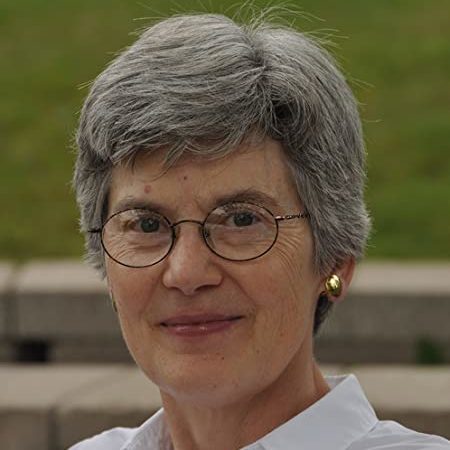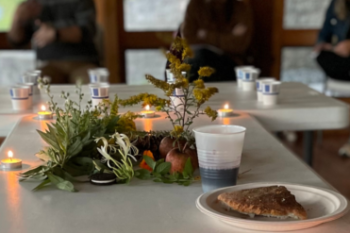Observing a Holy Lent?
On Ash Wednesday in Anglican or Episcopal churches the congregation is invited, “…in the name of the Church, to the observance of a holy Lent, by self-examination and repentance; by prayer, fasting and self-denial; and by reading and meditating on God’s holy Word.” Growing up in the Christian Church in a county seat town in southern West Virginia in the 1950’s and 60’s, I never heard that. Happily, I was taught that “other Christians” are our brothers and sisters. In the pre-baptism membership class (which I attended twice; I am a slow learner) our pastor took us to visit many churches in town. Repentance, prayer, and study of the Bible were central to my home church’s life for which I am profoundly grateful.
Perhaps our limited ecumenism (no “wiggling” on baptism by immersion, the Lord’s Supper every Sunday, or the primacy of scripture) is why I think the “observance of a holy Lent” has nothing to do with what other branches of the Christian family do or don’t do, and everything to do with following the example of Jesus, drawing closer to Him. I find the annual invitation to spend 40 days with a special focus on this both helpful and biblical.
In our noisy, distracted world, times of special devotion, self-examination…prayer, “giving stuff up,”… and enhanced Bible study are graces.
In the gospels, Jesus withdrew for periods of self-examination, prayer, and fasting. For example, in Mark’s gospel immediately after He is baptized (1:9-11), Jesus goes (is “driven,” actually) into the wilderness for 40 days. (1:12-13) This echoes other “40’s” in Jesus’ Jewish tradition. Matthew and Luke detail what happened during that time. (Matthew 4:1-11; Luke 4:1-13) Luke suggests that after it, Jesus was “filled with the power of the Spirit.” (3:14) Following Mark’s “typical day in the life of Jesus” depicting what His ministry will include (1:16-3:34), Jesus “got up and went out to a deserted place, and there he prayed.” His newly-called disciples weren’t pleased about it. (1:35-39) (Warning: if you withdraw to pray, people may come to distract you.) Luke’s gospel, the “gospel of prayer,” has the most references to Jesus praying, withdrawing to pray, and teaching about prayer. Matthew, Mark, and Luke depict Jesus’ withdrawal to pray in Gethsemane on his terrible night of decision.
When it is true to its origins, the Christian Church looks to the Bible for its practices. We find examples in the gospels of the “Lenten activities” to which the wider Church invites Christians in the 40 days before Easter. Personally, I think Lent has less to do with denominational affiliation, or other Christians’ practices, and more to do with personal devotion and prayer. Theologically, I think that by virtue of my baptism the whole tradition of the Church “belongs” to me. This doesn’t mean I agree with all doctrines or undertake every practice of every Christian group. But I do think the invitation to a season of special devotion before Easter, a time to “turn my eyes upon Jesus” and “look full in His wonderful face” is a holy opportunity, a gift given. But gifts aren’t gifts until we choose to accept them.
In our noisy, distracted world, times of special devotion, self-examination (which for me involves repentance), prayer, “giving stuff up” (which helps teach self-control and provides more to share with those who have so much less), and enhanced Bible study are graces. They help me re-center my life on that of my Lord in order to reflect it more clearly. Orthodox Christians call this process “deification in Christ.” (See Romans 8:29, 2 Corinthians 3:18, and 1 John 3:2-3.)
But I do think the invitation to a season of special devotion before Easter, a time to “turn my eyes upon Jesus” and “look full in His wonderful face” is a holy opportunity, a gift given. But gifts aren’t gifts until we choose to accept them.
To put it crudely (in language of which my mother would not approve) the invitation of the 40 days before Easter is to slow down and shut up, to listen so that, like Elijah, we hear the “still, small Voice” which is always whispering, “I love you,” and “ye who are weary, come home.” The saving gift of the “Pascal mystery,” our Lord’s death and resurrection, always awaits us. How can it be amiss to prepare spiritually for its annual celebration at Easter?
About the Author:
Bonnie Thurston grew up in First Christian Church, Beckley, WV and graduated from Bethany College. After graduate and post-graduate study, she taught for nearly 30 years, primarily in church-related colleges and seminaries including (formerly) Emmanuel School of Religion, then left academe to live quietly in her home state. She has authored 24 theological and/or spiritual books, 7 books of poetry, and contributes to scholarly and popular periodicals.




